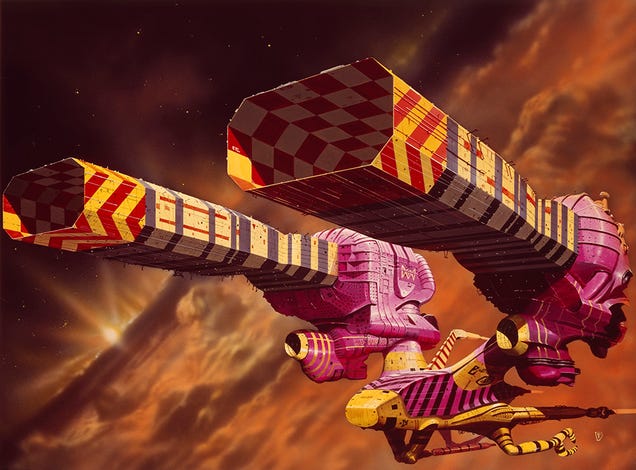Friday, September 19, 2014
Thoughts on Jodorowsky's Dune
Last week I finally saw Jodorowsky's Dune, a documentary I had desperately wanted to see when it hit the art house theaters before the demands of parenting interceded. It was everything I had hoped it to be, a rare experience these days.
In case you don't know, it is a film about a failed film. In the mid-1970s, Mexican surrealist/psychedelic/totally whacko director Alessandro Jodorowski decided to adapt Frank Herbert's iconic novel Dune for the silver screen. (This was a decade before David Lynch's ill-fated version.) He did not merely want to make a film, he wanted to produce a spiritual experience that would raise the consciousness of the world. He managed to assemble a world-beating team of design and effects mavens, including HR Giger and Dan O'Bannon, who would later go on to work together on Alien. Jodorowsky also got commitments from Mick Jagger, Orson Welles, and Salvador Dali to appear in it. He needed to get some additional funding to get it made, but none of the Hollywood studios bit, and the film never got made.
In order to better solicit funds from the studios, Jodorowsky's team of what he termed "spiritual warriors" storyboarded the entire film, and put the results in book form. The images from that book are breath-taking and intriguing, and inevitably inspire deep thoughts about what might could have been. The vision behind the film is so vast and impossible for the time that it's hard to believe such a film had any chance of getting made. If it had, the course of cinematic history would have been vastly altered.
Dune would have appeared in 1975, two years before Star Wars rewrote the rules for science fiction and space adventure. As much as I truly love Star Wars, it is hard to love its unintended consequences. For one, "hard" science fiction rarely appears on film (the recent Snowpiercer is an exception.) Sci-fi tends to be of the action-adventure variety, such as the (nevertheless) stellar Guardians of the Galaxy. It became the ultimate crowd-pleasing genre, one where the complex ideas and social critique so common to literary sci-fi were conspicuously absent. Jodorowsky's film may have given birth to a science fiction tradition in film of a more intellectual bent. As insane and detached from reality as Jodorowsky often seems, at least he was really trying to do something revolutionary. Most of what lands in the multiplexes these days bearing the title of "science fiction" is bereft of any traces of artistic or intellectual depth.
It is also obvious that while Jodorowsky's magnum opus never saw the light of day, his concepts and those storyboards did not go unnoticed. StarWars had its own spiritual addition to science fiction, in the form of The Force. The creative team he put together did manage to make a film together, on 1979's Alien, but without Jodorowsky. That fact is a little depressing, since it seems that pathbreaking ideas in cinema only reach the public after they have been mediated and made safe by popularizers. Truly original cinematic visions are awful hard to come by, and Jodorowsky's Dune is an irresistable look at one of the last great attempts to make something truly new under the sun.
Subscribe to:
Post Comments (Atom)

No comments:
Post a Comment